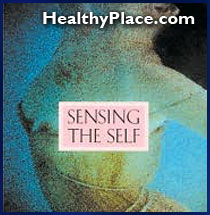Bulletin of the Society of Psychologists in Addictive Behaviors, 5(4): 149-166, 1986
Afterword added 1996
Morristown, New Jersey

Abstract
Drug and alcohol use are emotional topics, particularly in the United States today. Those who study and treat substance abuse must navigate extremely tricky waters. Among the most dangerous areas for psychologists are controlled drinking by former alcohol abusers and controlled use of illicit drugs such as cocaine and narcotics. Popular beliefs in this country, which strongly oppose these conceptions and the data that underlie them, have had a major impact on professional attitudes and policies. While it is risky to discuss such outcomes or to accept that clients may be capable of them, there are extreme dangers in denying their existence. The inability to air these issues is a mark of our society's failure to stem substance abuse.
Personal and Historical Background
I arrived at the study of addictive behaviors by an unusual route. I didn't study addiction in an academic or clinical program. In fact, I came to addiction as a social psychologist and not as a clinician, and my ideas often diverge from those of other psychologists who study and treat addiction. The impetus for my entrance into the field was my observations about the compulsive love relationships many young people of my era (the sixties) formed and about the ways in which drug use by my peers and others often did not conform with popular stereotypes about these substances. These observations forged the basis for a book, Love and Addiction, which drew me into the substance abuse field and its clinical concerns and emphases.
I began lecturing at addiction workshops and conferences, first at a local level and in continuing education programs, then at national (and some international) conferences. My appeal at these conferences was, I believe, my ability to translate social scientific research into experiential terms that clinicians could utilize, along with my very broad view of the nature and sources of addiction. At the same time, I quickly realized that these new settings in which I found myself differed very substantially from my staid academic background. For example, very shortly into the first extension course I taught, one woman rose and said she had to leave or otherwise she would have to kill either herself or me. Although the class ("Social and Psychological Aspects of Addiction") was part of a certificate program in alcoholism counseling, I discovered that many in the class were former alcoholics without any psychological training who differed markedly in their approach to learning from ordinary students or therapists in training.
Because most of these people were wedded to a particular view of alcoholism and addiction (indeed, they felt their sobriety depended on this view), open discussions about many topics were not possible. The chief of these restrictions was against questioning the validity of the disease theory of alcoholism and its hallmark, the necessity of complete abstinence for alcoholics. Thus the typical counselor emerges from such programs completely innocent of any other point of view than the disease perspective. In this way, major institutions of higher education lend their imprimatur to programs that do not meet the fundamental requirements of an open educational process. If social-scientific researchers with opposing viewpoints appear at such programs (and generally they do not), they learn, as I did, to censor unpopular views that their audiences might choke on.
The views I expressed in the mid-1970s that were must controversial to the general public were not about alcoholism but rather concerned about the nonaddicted use of narcotics. Since I understood addiction to be the result of a complex interaction of culture, immediate environment, individual disposition, and substance, data on the controlled use of narcotics made good sense to me. At the time I wrote Love and Addiction, the data about Vietnam veterans' narcotics use was becoming evident—data disconfirming all conventional pharmacological notions of narcotic addiction. Conducted under a team headed by Lee Robins, this research discovered that fewer than 10% of the veterans who used narcotics stateside became addicted. Among those soldiers who had been addicted in Vietnam, 61% of whom used a narcotic and 43% of whom used heroin stateside (including quite a few regular users), only 12% became readdicted in the United States (Robins et al., 1980).
Perhaps the most startling aspect of these data was how little impact they had on popular, clinical, and even research-oriented conceptions. Although these data were based on an unusually thorough investigation of a highly publicized subject group about which great concern was demonstrated, their implications were for the most part ignored. These implications concerned, first, the extent of nonaddicted heroin and other street narcotics use, and, second, the likelihood of recovery from addiction without abstinence. Furthermore, unless one accepted that alcoholism was essentially different in nature from narcotic addiction (which I did not), these data seemed also to reflect on the possibility of alcoholics' return to controlled drinking.
During the same period when the Robins group published its findings on Vietnam veterans, two sociologists and a psychologist at the Rand Corporation published their findings on outcomes at National Institute on Alcohol Abuse and Alcoholism treatment centers. The first of the two Rand studies (Armor et al., 1978) reported that those in remission at 18 months were as likely to drink without problems as to maintain stable abstinence. The reaction to this study when it appeared in 1976 was stunning. The June 12, 1976 issue of the Los Angeles Times carried a front-page story reporting that the California Alcoholism Advisory Board had declared the Rand study "methodologically unsound and clinically unsubstantiated" and indicated that "the lives of many persons with this disease are now endangered" (Nelson, 1976). On June 23 Ernest Noble, the Director of the NIAAA, released a bulletin expressing distress at the report's findings since they had "the potential for affecting so many lives in a negative manner." The National Council on Alcoholism presented a press release and convened a press conference in Washington on July 1 condemning in brutal terms the value and impact of the study (see Armor et al., 1978, Appendix B).
The modern alcoholism movement in the United States is directly descended from the temperance movement. As embodied by Alcoholics Anonymous and the National Council on Alcoholism, it is built on unquestioning dedication to abstinence. In no other country in the world do recovering alcoholics, AA, and abstinence dominate treatment for alcoholism the way they do in the United States (Miller, 1986). An indication that different climates of opinion on these questions exist in other countries comes from the British National Council on Alcoholism, which declared that "controlling one's drinking pattern and thereby one's behavior may be an alternative which many people prefer, and are able to achieve and sustain, and for this reason they deserve our support and guidance" (Boffey, 1993, p. C7). Fanny Duckert, a Norwegian researcher, described her approach to therapy: "It might be easier to agree upon a goal that states 'we want to reduce alcohol consumption, and we want to reduce problems connected with drinking.' But one can have this reduction in different ways ... For me it's not a dramatic difference between not drinking altogether, or reducing alcohol consumption to a level that's not going to create problems" (Marlatt et al., 1985, p. 132).
Of course, diversity on this question has existed in the U.S. as well. This diversity was apparent in the reaction to the Rand report itself. While NCA critics were blasting the report, NIAAA Director Ernest Noble solicited three reviews of the report from distinguished researchers; Lenin Baler, Professor of Community Mental Health at the University of Michigan, declared "The Rand report is the most exciting ... [NIAAA research report] I have seen. This is because it deals comprehensively, boldly, yet objectively with critical issues ... in the alcoholism field." Samuel Guze, Chairman of the Washington University Department of Psychiatry, found the results "offer encouragement to patients, to their families, and to relevant professionals." Gerald Klerman, Professor of Psychiatry at Harvard Medical School, found the report's "conclusions are highly justified" and urged the NIAAA "to stand firm" in the face of "great political pressure" (Armor et al., 1978, Appendix B ).
As these evaluations indicate, at the time the first Rand report was published important clinicians and others could still unselfconsciously welcome controlled-drinking outcomes in alcoholism treatment. These quotes serve now only to show how much such ideas have been rejected, paradoxically as a result in many ways of the Rand report itself. For the report galvanized the opposition of the dominant treatment community and began a largely successful campaign to attack any therapy that accepted moderation of drinking problems as an outcome. This was clear when Noble responded to the reviews he solicited by insisting that "abstinence must continue as the appropriate goal in the treatment of alcoholism." Really, the Rand report showed that the basic premises of such therapy could not be questioned by research or contrary data.
The second Rand report (Polich et al., 1981) responded systematically to criticisms of the original report; again, the investigators found substantial numbers of what they termed "nonproblem" drinkers. Criticism by the NCA and related groups was somewhat muted this time around, while a large number of social scientific reviews in the Journal of Studies on Alcohol and the British Journal of Addiction were almost uniformly positive. The most remarkable consequence of the second report was that the Director of the NIAAA, John DeLuca, and his executive assistant, Loran Archer (neither of whom had a research background), offered their own summary of its results. This summary emphasized that abstinence ought to be the goal of all alcoholism treatment and that AA attendance offered the best prognosis for recovery, statements the report explicitly rejected (Brody, 1980).
The NIAAA executives' summary of the second Rand report made clear that the treatment community had already rejected the report's findings by consensus, and that it would have no noticeable impact on treatment or on attitudes toward alcoholism in this country. In the early 1970s, several teams of behavioral psychologists had reported good results in training alcoholics to drink moderately. By the time the second Rand report appeared in 1980, however, behavioral psychologists had already decided these techniques should be restricted to problem drinkers—those with less severe drinking problems. In this sense, the major potential constituency for the Rand study had already rejected the Rand finding that nonproblem drinking was possible in a severely alcoholic sample (nearly all Rand subjects reported signs of alcohol dependence, such as withdrawal, and the median level of alcohol consumption on intake was 17 drinks daily).
The most frequently cited research on the benefits of moderation therapy for alcoholics had been conducted by Mark Sobell and Linda Sobell in 1970-71 at Patton State Hospital in Southern California. These researchers had reported that a group of 20 alcoholics who were taught moderate-drinking techniques had fewer days of alcoholic drinking after two and three years than did alcoholics receiving standard abstinence treatment at the hospital. In 1982, the prestigious journal Science published a refutation of the Sobells' study by two psychologists, Mary Pendery and Irving Maltzman, and a psychiatrist, L. Jolyon West. The Science article reported numerous instances of relapse by controlled-drinking subjects in the Sobells' experiment.
An earlier version of the Science article (which the journal had rejected on the grounds it was libelous) had been widely disseminated to the media. In several interviews, at least one of the article's authors repeated his claim that the Sobells had committed fraud. The Addiction Research Foundation of Ontario (where the Sobells now work) convened a panel to investigate the charges raised in both the rejected and published forms of the article. This panel comprised a law professor, a retired medical professor, a professor of psychology and head of a school of criminology, and a former university president. The panel report cleared the Sobells of accusations of fraud. It indicated that the Sobells had reported all the relapse episodes uncovered by Pendery et al. and others besides. Moreover, the panel expressed grave reservations about the way the authors of the Science article had proceeded. They concluded: "Ultimately, the goal of the scientific study of alcoholism is not well served by disputes such as this one." (See reviews of this dispute in Cook, 1985; Marlatt, 1983; and Peele, 1984.)
At the time the Science article appeared, I had been writing a monthly column in the U.S. Journal of Drug and Alcohol Dependence, a trade publication in the field. Initially, I was reluctant to become involved in the dispute. Although I knew people with severe drinking problems who had reduced their drinking over the years, I hadn't trained any alcoholics to drink moderately. Especially since behavioral psychologists themselves were now downplaying the possibility of moderate drinking by alcoholics, it seemed foolhardy for me to defend a 10-year-old piece of research. Nonetheless, when the ARF panel issued its report, I felt compelled to summarize the dispute in my column. I followed this with an article in Psychology Today (Peele, 1983) that, coincidentally, appeared in the first issue published under the masthead of the American Psychological Association (APA) after it purchased the magazine.
Shortly after my Journal column on this matter, my editor concluded we should end my monthly contributions to that publication. Following the appearance of my Psychology Today article, this editor told me he couldn't accept anything I wrote, and my name hasn't appeared in that publication to my knowledge (except for a report on Mary Pendery's attack on me at the 1983 NCA conference) in the intervening years. Meanwhile, prior to my PT article, I had been scheduled to present a keynote speech at the Texas Commission on Alcoholism's well-known summer school, held on the campus of the University of Texas in Austin. My invitation was retracted after my article appeared. I protested both on grounds of academic freedom and legal grounds and was finally reinstated. Since 1983, however, the number of invitations I have received from conferences like that in Texas has dropped dramatically.
My experience with this alcoholism dispute has given me a strong idea of the political power of the alcoholism movement to suppress discordant views. What astounded me most was how academic, professional, and government associates recommended that I drop the matter with the Texas Commission, saying simply that these events were typical. Apparently, those in the field had given up expecting freedom of speech or that a range of views should be represented at conferences receiving government funding and conducted at major universities. What I had uncovered was a matter-of-fact acceptance that those who do not hold the dominant point of view will not be given a fair hearing; that even to mention that there is doubt about accepted wisdom in the field endangers one's ability to function as a professional; and that government agencies reinterpret results of which they disapprove from research they themselves have commissioned.
The Implications for Alcoholism Treatment and Research of Smear Tactics and Trial by Media
NCA and other critics of the Rand reports justified lurid accusations and resulting headlines on the grounds that simply learning of results like those reported by the Rand investigators could lead alcoholics to relapse and to death. As Dr. Luther A. Cloud, having "learned that some alcoholics have resumed drinking as a result of...the Rand study," felt compelled to indicate, "this could mean death or brain damage for these individuals" (Armor et al., 1978, p. 232). Thus, these critics believe there are good grounds to suppress such information. Several efforts were made to prevent the release of the first Rand report. The L.A. Times reported that Rand board member Thomas Pike "had tried unsuccessfully to get the Rand report killed" (Nelson, 1976, p, 17). Mary Pendery, chair of the California Advisory Board, announced at the NCA press conference that she had called the head of domestic programs at Rand in a last-minute attempt to delay the report so that it could be reanalyzed in line with the opinions of "top scientists" (NCA Press Conference, 1976 , p. 5).
Of course, the impact of different treatment strategies and goals is an empirical question, one which the Rand research was intended to investigate. Both of the Rand reports analyzed the results of patients' moderated drinking or abstinence for later relapse. Neither discovered one approach to be inherently superior for preventing relapse. The primary goal of the Sobells' study was to compare the success of controlled-drinking versus conventional abstinence treatment on patient outcomes. Its conclusion was that although relapse was not uncommon for either group, controlled-drinking therapy yielded significantly less relapse. The primary criticism of the Pendery et al. study by the ARF panel and others was its failure to present any comparative follow-up data for the hospital abstinence group in the Sobells' study, which meant it was never able to refute the Sobells' claim that controlled-drinking therapy led to better outcomes.
Pendery et al. reported that four controlled-drinking subjects had died in the ten years following treatment. In response to the ARF investigation, the Sobells discovered (simply by writing to California authorities) that six of the abstinence subjects had died in the period covered by the Pendery et al. report. Moreover, Sobell and Sobell (1984) found the first of the controlled-drinking deaths occurred more than six years after treatment and the last two ten years or more after. The latter two subjects, who died while intoxicated, had both recently been released from traditional abstinence programs. Overall, Sobell and Sobell (1984) noted, the death rate for controlled-drinking subjects in this study was less than that reported in typical studies of alcoholic patients.
Why then was such a fuss made about the tragic outcomes of controlled drinking treatment? Of course, any death is horrible, the more so when brought on by self-destructive behavior. Yet the Pendery et al. data could not cast light on the risks of controlled-drinking versus abstinence treatment. Nonetheless, deaths in the experimental treatment group were highlighted in media accounts of the case. The CBS Evening News, in its report on the Science article, showed a lake where one controlled-drinking subject drowned. 60 Minutes, in a segment strongly supporting the Pendery et al. argument (screened in March, 1983), filmed Harry Reasoner walking alongside the grave of one subject. Such scenes are, after all, how television dramatizes the news. Naturally, they pack a tremendous emotional punch. We might compare these circumstances to those in which David McClelland (1977) reported on results of a nonabstinence socialized power approach to treating alcoholism. McClelland noted with academic caution that five in the standard hospital treatment program used as a comparison died while none died in the socialized power treatment. Imagine the potential consequences if this finding had been reversed!
At the time of the 60 Minutes program on the Sobells' case, the ARF panel's report was already available. Mary Pendery and Irving Maltzman had declined to cooperate with the ARF investigation, they said, because it lacked subpoena powers (Maltby, 1983). This made it easy for 60 Minutes to ignore the report (which ran 124 pages in length). Reasoner's reason for discounting the report was that the panel had not interviewed the patients in the study. A later investigation conducted by the Alcohol, Drug Abuse, and Mental Health Administration (ADAMHA) likewise exonerated the Sobells of intentional or serious wrongdoing. This investigation solicited materials from a subject, Raymond Miller, who had been central to the Pendery et al. and 60 Minutes investigations. The report found nothing inconsistent in this man's evidence with the Sobells' published data.
The ADAMHA report ("Report of the Steering Group," 1984) described how several times, Pendery and or Maltzman either volunteered or agreed to send additional materials to support their assertions (p. 11). "However, despite repeated requests from the investigators, neither Pendery nor Maltzman submitted any documents ... in support of their allegations" (p. 2). In two other cases, investigators were stymied in efforts to enlist the cooperation of the Science article authors. James Jensen, an investigator for the Subcommittee on Investigations and Oversights of the United States Congressional Committee on Science and Technology, also found no basis for any claims of fraud against the Sobells. Jensen mentioned that "in several conversations" he had been unable to convince Pendery to present her evidence (Maltby, 1983, p. 1). Lastly, two psychologists interested in alcoholism treatment and controlled drinking and known for their balanced positions had arranged with Pendery and Maltzman to examine the latters' evidence against the Sobells. Based on this understanding, William Miller (letter to Mary Pendery dated July 5, 1984) composed a detailed list of 14 questions he and a colleague planned to address, including such basic issues as the protocol the investigators used to conduct follow-up interviews with subjects, which has nowhere been reported. However, Miller (personal communication, October 8, 1984) informed me, "Maltzman has withdrawn the offer made to me by Mary Pendery to examine their data first-hand" because he claimed this would "compromise the class action [suit] by the patients against the Sobells."
In explaining why she had cooperated with the 60 Minutes program but no other investigation, Pendery announced, "It did a terribly thorough investigation .... I was aware you have to cooperate with some people because you lose credibility if you don't" (Maltby, 1983, p. 3). At the 1983 NCA conference at which Pendery made an "emotional address" against controlled drinking, critics of her work, and the APA and psychologists in general, a tape of the 60 Minutes program was continuously screened ("Controlled Drinking Gets Rough Review...," 1983). As exemplified by the wide distribution of the version of their article rejected by Science, the Pendery et al. use of the media has been highly successful. There would seem to be little reason for these authors to cooperate with elaborate institutional or scientific investigations that have not yet provided much support for their case. Instead, they have achieved their aims through the national media and presentations to alcoholism groups. Describing one such presentation, entitled "Controlled Drinking; A Pseudo-Controversy that Kills," Marlatt (1984) reported that Maltzman accused the Sobells of fraud and Pendery indicated that controlled drinking had caused the death of several alcoholics. In her 1983 speech before the NCA, Pendery announced the overriding purpose of her campaign was to secure "a correction in the textbook literature "eliminating mention of the Sobells' research and other studies supporting controlled drinking ("Controlled drinking...," 1983, p. 1).
The Science article authors were led to their conclusions in good part by their interviews with former subjects, many of whom had now accepted abstinence treatment. Some former subjects in the Sobells' study organized an "Alcoholism Truth Committee" to support the Pendery et al. investigation (Peele, 1985). Raymond Miller, a key individual in this group, was prominently featured on 60 Minutes and was singled out for acknowledgement in the Pendery et al. Science article. Miller co-authored a book entitled Alcoholic Heaven in which he described his participation in the Science investigation, including enlisting the support of other experimental subjects and gaining cooperation from one spouse when he found the subject himself uncooperative.
This entire enterprise of recruiting former subjects to testify against a therapy or therapists has tremendous implications for the conduct and evaluation of therapy. In an era of activist malpractice claims against all sorts of treatment, the psychotherapist would seem to be particularly susceptible to claims of failure or discontent by former patients. As indicated, a group of former Patton State patients has sued the Sobells and the state of California. Obviously, controlled-drinking therapists are not the only potential objects for such claims, since continued alcoholism sometimes leading to death is a frequent outcome of all treatment for alcoholism (cf. Helzer et al., 1985). As Marlatt (1983) pointed out, nearly all the Sobells' patients also underwent standard alcoholism treatment, so should these treatment centers also be liable for any patient failures and deaths? Under other circumstances, people may be more forgiving of the failure of therapists to succeed with patients. For example, news articles describing the appointment of Dr. Forest Tennant as chief of drug testing for major league baseball mentioned among his credentials his treatment of Steve Howe. Howe has relapsed several times and was released by two baseball teams after his treatment for cocaine addiction.
The dangers in one school of therapy spearheading legal and personal assaults against another have not roused psychology or the alcoholism field to action. In part, this is because the competing claims are often so difficult to evaluate. Moreover, psychology has traditionally been reluctant to take stands on matters of individual treatment doctrine or to censor those who go too far in criticizing others. One colleague of Irving Maltzman's wrote me, for example, that he feared editors had unfairly discriminated against Dr. Maltzman by not allowing him to publish articles they felt slandered the Sobells or other parties involved in this dispute. I find the reluctance of psychologists actively to disapprove this type of calumny and smear tactic very troubling. For me, the fear, self-protection, and disregard for individual rights surrounding the attack on controlled drinking (paradoxically justified by the academician who wrote me in terms of intellectual freedom) very closely resemble the atmosphere of the McCarthy era.
Continuous reinvestigation of the Sobells' work, affidavits by their research assistants, and the basic consistency of their data with all new claims by subjects and others about relevant events have somewhat lessened the impact of the attacks on the integrity of these researchers. (We may wonder how well many researchers and clinicians would hold up under the kind of scrutiny that has been applied to the Sobells' work.) Nonetheless, the harassment and obfuscation the Sobells and the Rand investigators experienced have clearly discouraged objective research of the type their work represented. The Sobells may no longer labor under the suspicion—at least among most fellow researchers and scholars—that they have committed a heinous crime against science and humanity. However, the burden of national television shows and popular magazine reports about the harmfulness of controlled-drinking therapy and those who perform it will not be so easily removed. For the public, many professionals in the field, and some opportunistic academics and others concerned with alcoholism, it has been proven that those who would recommend controlled drinking for alcoholics must be inept or dishonest and should not be considered seriously as scientists and therapists.
The Latest Drug Menace
The attention of the media cannot long be held by relatively subtle questions like controlled-drinking treatment for alcoholics. Instead, with increasing intensity in recent years, our society has been addressing the question of cocaine abuse. The surge in concern over this substance parallels, but may be more intense than, that directed in turn towards marijuana, LSD, glue sniffing, PCP, Quaaludes, heroin, et al. Researchers and clinicians have appeared to be eager to join this bandwagon (certainly none wishes to be in the opposite camp of favoring cocaine use). Part of the analysis by pharmacologists, psychologists, and physicians has been of the special addictive properties of cocaine, thus reversing decades of work claiming that cocaine was to be distinguished from heroin in that cocaine lacked addictive, or physical-dependence producing, characteristics (cf. Peele, 1985.)
Consider the following description by Cohen (1985):
If we were to design deliberately a chemical that would lock people into perpetual usage, it would probably resemble the neuropsychological properties of cocaine [p. 153] .... The primary deterrent [to cocaine dependence] is the inability to sustain the practice because supplies become unavailable. The user is then driven to obtain additional cocaine without particular regard for social constraints. A variety of paranoid, manic and depressive psychotic states result with accidental, homicidal or suicidal potentials. (p. 151)
The imagery here is reminiscent of Reefer Madness and of the popular view of heroin—a view which the Vietnam research radically undermined (Robins et al., 1980 ). In fact, the epidemiological data on cocaine use are in line with similar data for other powerful mood-modifying substances. While 17% of 1985 college students used cocaine in the previous year, 7% in the previous month, .1% reported using it daily (Johnston et al., 1986). This compares, incidentally, with 57% of male college students and 34% of female who reported having a drinking bout (five drinks) at least once in the previous two weeks.
Siegel (1984) found the majority of long-term cocaine users were controlled users. Even those who abused the drug usually had intermittent episodes of excess and thus little resembled those who call cocaine hotlines or who are presented as typical cases in television documentaries. Clayton (1985) noted that, although large numbers of high school students and others were using cocaine, less than 5% of those in treatment reported it as their primary drug of abuse. Cocaine abusers abuse other drugs at the same time and share the characteristics of abusers of other drugs. For example, the best predictors of degree of cocaine use for high school students were marijuana use, truancy, and cigarette smoking. Similarly, although lurid stories of crack addicts are featured in the media, the very numbers of crack users in New York city and elsewhere strongly suggest there is a range of patterns of use of this form of the drug (Peele, 1987b).
Thus the federal cocaine trafficking trial in which several baseball players testified revealed primarily large numbers of users either whose use never got out of hand, or else who saw their use was detrimental to their game and desisted on their own (Peele, 1986). Yet the mood of the country today is not likely to support the idea that cocaine is a drug with widely variable effects and usage patterns. Even those whose research depicts such complexity slant their writing toward sensationalistic depictions of cocaine addiction and toward highlighting the inevitable dangers and damage from the drug. Fear of cocaine and other illicit drug use among the young, athletes, and others has created a hysterical atmosphere where almost any steps, from foreign invasion to invasion of privacy, can be justified.
What seems most remarkable about these alarmist campaigns is their lack of notable success. In 1982, 22 million people were found to have used cocaine—less than 4 million of whom were current users. Since that time, which marked a major escalation in various campaigns against the drug, cocaine use has continued at a remarkably high level (as indicated by the national student survey) and expert commentators have described epidemic levels of cocaine addiction (Peele, 1987a). At the same time, "'Crack has become in a very short time the drug of choice in New York City" (Kerr, 1986). Apparently, users do not believe the lurid depictions of cocaine's effects, or else they choose to use it anyway. The latest survey of young drug users finds nearly 40% of current high school graduates use cocaine before they are 27. These users report not believing the dangers typically attributed to cocaine, primarily because they and their friends have not experienced them (Johnston et al., 1986).
Treatment, Denial, and Our Failure to Stem Alcohol and Drug Abuse
Many observers are forced to juxtapose these data showing massive exposure to cocaine with the idea that cocaine use invariably becomes compulsive. Some argue that young users don't know what they're talking about when they describe their own casual use, that inevitable tragic consequences await many of these, and that many already suffer these consequences but are not aware of them because they are so bound up in their drug addiction. Are we a massively addicted society, only many of those affected don't realize it? The clinical concept that expresses this viewpoint is "denial," or the incapacity of drug and alcohol users accurately to perceive themselves and their substance use.
This alleged denial is then often used to justify treatment interventions with unwilling clients, particularly the young. On May 20, 1985, CBS Evening News ran a segment in which a CBS employee posing as a father called a treatment program to report his daughter for using marijuana and for dating an older boy. Based on no other information, the daughter (also a CBS employee) was placed in residential treatment. She wore a hidden microphone, and when she told a counselor she didn't have a drug problem, he replied that most of their patients made similar claims. In other words, they were all practicing denial. Admissions like these, according to CBS, had caused hospitalizations of adolescents to more than quadruple between 1980 and 1984.
CompCare Medical Director Joseph Pursch was presented in an interview on the news segment with a case scenario like that which had actually occurred; he denied such a case would be admitted to inpatient treatment. In a later debate on this case and related issues, CompCare Vice President Ed Carels took an aggressive stand toward those involved in the CBS program: "I don't know why you think that when you're done, the mafia, NORML and all those supporting drug abuse in the world won't have you and Mr. Schwartz [referring to those who arranged the case in which the girl was committed] as their champions." Mr. Carels noted that parents weren't concerned "about treatment professionals doing something wrong with their child. 'They are worried about their kid dying because of lack of professional help'" ("Adolescent Treatment Debate Rages," 1986).
The idea of death as the progressive end state of untreated alcohol or drug abuse derives from the disease-theory notion of addiction as an inevitable and irreversible process. The recent best-seller, The Courage to Change, relies on the personal testimony of recovered alcoholics and others to point up the pervasiveness of alcoholism and the urgent need for treatment. Dr. S. Douglas Talbott indicated "22 million people have an alcohol problem related to the disease of alcoholism." The possibilities for any such person "are these three: he or she will end up in jail, in a hospital, or in a graveyard" (Wholey, 1984, p. 19). Naturally, according to this model, it is imperative to get anyone abusing alcohol into treatment.
Epidemiological data systematically dispute the disease model. Most young people outgrow substance abuse, even its severe forms. The most powerful data on the return to controlled drinking do not come from studies of treatment outcomes, but rather from surveys of drinkers who do not enter treatment at all. The Cahalan-Berkeley group have regularly found problem drinkers to attenuate their drinking with age, and only rarely to abstain (Roizen et al., 1978). Similar natural remission over the course of the individual's life appears regularly even among severe cases of alcoholism (Gross, 1977). Indeed, Room (1980) discussed the repeated finding that only those who enter treatment display the full array of alcoholic symptoms, which include inevitable loss of control and the impossibility of regaining control of the drinking function. Treatment here seems to be necessary for the development of the classical alcoholism syndrome.
The commonplaceness of the natural correction of drinking problems over time comes through even in research like George Vaillant's The Natural History of Alcoholism, which sets out to defend the disease view of alcoholism. The majority of the over 100 inner-city alcohol abusers the Vaillant study followed for 40 years ceased abusing alcohol, in nearly all cases without treatment. Twenty percent returned to moderate drinking and 34% abstained. However, Vaillant defined abstinence as drinking less than once a month (he also allowed his abstinent—but not controlled—drinkers the leeway of up to a week of alcoholic drinking during the year). As Vaillant (1983) indicated, "relatively few men with long periods of abstinence had never taken another drink" (p. 184).
Of course, all alcoholics do not recover on their own. Along with the inaccurate notion that alcohol abuse inevitably worsens without treatment, the medical model insists that treatment of the disease significantly enhances the recovery rate for alcoholism. Although Vaillant's case descriptions emphasize the requirement of AA membership, he actually found 37% of those who achieved a year or more of abstinence relied an AA (the controlled drinkers obviously had almost no contact with AA). Just as the Rand investigators discovered, Vaillant (private communication, June 4, 1985) found that long-term AA membership was associated with long periods of abstinence, but that those attending AA also relapsed more often than those who quit drinking on their own. Meanwhile, analyzing remission in 100 alcoholic men and women treated in a medical program he supervised, Vaillant found their progress after 2 and 8 years "no better than the natural history of the disorder" (pp. 284-285). Vaillant reported 95% of his patients relapsed. One emerges deeply puzzled by Vaillant's insistence that medical treatment and AA attendance are imperative for alcoholics.
An even more outstanding case of rationalizing conventional treatment verities in the face of almost total lack of treatment success was presented in a much-noted study in the New England Journal of Medicine, which found only 1.6% of treated alcoholics returned to moderate drinking (Helzer et al., 1985). What, then, were the outcomes of this hospital treatment where controlled drinking has been so thoroughly discouraged? Overall, treatment for alcoholism in this study produced results decidedly inferior to the natural remission rates for alcoholism Vaillant (1983) summarized (cf. p. 286). Moreover, of the four hospital units Helzer et al. examined, inpatient alcoholism treatment showed the lowest remission rate, one half the remission rate (among survivors) of that for patients treated in a medical/surgical hospital. Only 7% of those treated in the hospital alcoholism ward survived and were in remission at a follow-up period of from 5 to 8 years! It might seem that self-congratulations for the dominant views of alcoholism and addiction treatment are somewhat premature.
Yet treatment for substance abuse (or chemical dependence) has become more coercive than ever before (Weisner & Room, 1984). Most referrals now come from the court system or employee assistance programs, where treatment is offered as an alternative to prison or job loss. Treatment is almost always geared toward the disease model, abstinence, and 28-day hospital programs, so that, for example, a drunk driver under court-ordered treatment may be put in jail for showing any alcohol in a follow-up blood or urine test. The largest single category of such referrals is DWI; consider this analysis by the President of the Insurance Institute for Auto Safety: "the best research to date has found that drivers convicted of alcohol-related offenses have fewer crashes after their licenses have been suspended or revoked than after being sent through present types of rehabilitation" (Ross, 1984, p. xvii).
The person with a drinking problem who is directed to treatment by his company or the courts in fact infrequently qualifies as alcoholic. Nonetheless, he or she—like most people who present themselves for treatment—are often hospitalized and invariably instructed in abstinence and other disease-based recommendations (Hansen & Emrick, 1983). If people like this resist such diagnosis and treatment, they have proven their denial and thus that they are suffering from the disease of alcoholism! It is not surprising that most people—even those who acknowledge they may be abusing a substance—refuse to seek treatment. If they do seek treatment that contradicts their self-assessment, they frequently drop out or fail to benefit from therapy (Miller, 1983).
In this sense, the largest source of denial is the therapy itself and the belief systems of those who conduct it (Fingarette, 1985). When therapists gainsay the ideas that people can improve their drinking or drug-taking status without abstaining, or that people can use a drug regularly without abusing it or risking addiction—as has repeatedly been established by epidemiological research—we may say that it is therapists and addiction and alcoholism experts who are practicing denial. Thus we refuse either to support nonproblematic substance use or to help people with their problems before these are completely out of hand. As indicated by the type of person who voluntarily calls an 800 hotline, when people are finally willing to commit themselves to standard treatments they have usually progressed to the point where their life has collapsed and therapy is a stop-gap, emergency measure rather than a path to health and an ordinary lifestyle.
The failure of our policies to prevent the rapid rise in cocaine use or addiction, to eliminate high levels of problem drinking among young people (large numbers of whom seem destined to grow into alcoholism), or to help most alcoholics or addicts would seem to be severe indictments of these policies. Instead, the policies are apparently reinforced by their lack of success as we up the ante of military interventions against the production and importation of cocaine and we increasingly recommend drug-testing of athletes, young people, and practically everybody else. Consider that the 1986 deaths of athletes using cocaine occurred with one whose school was already aggressively drug-testing athletes and another whose club boasted the most active treatment program in the NFL—the two most popular methods for responding to drug abuse among athletes and others.
Is it really true, as our current model of addiction and its treatment suggests, that our only hope for keeping people from drowning in drugs is to blockade our shores and coerce people into therapy? Have we given up on the possibility of self-control, so that addiction and denial are concepts that require us to take control over more and more people's lives? If we accept this view, have we not already lost the war on drugs? It is fascinating, though not wholly unpredictable, that in this atmosphere alternative views of drug use and abuse, alcoholism, and treatment have all but been eliminated. For example, despite the repeated failure to show the efficacy of conventional treatment for DWI referrals, the Attorney General of New York recently petitioned the State Supreme Court to have a nondisease program for drunk drivers placed under the control of the State Division of Alcoholism and Alcohol Abuse, which disapproved of the program's approach (State of New York Supreme Court, 1986). Is it possible that our programs are designed primarily to preserve and support conventional wisdom and those who are emotionally committed to it rather than for their actual effectiveness in dealing with the problem?
Advocates of traditional treatment approaches are undaunted by reports like Vaillant's that treated alcoholics did no better than untreated alcoholics and Helzer et al.'s that 93% of inpatient alcoholic patients either died or were still alcoholic after five to eight years. An editorial based on the Helzer et al. study warned that "Any treatment professional who holds out controlled drinking as a reliable option ... ought to consider getting very good malpractice insurance" ("Rx—Abstinence: Anything Less Irresponsible, Negligent," 1985). Responses to an article on moderate drinking in the Washington Post (November 27, 1985, p. 6) averred the discussion "has significant potential for causing great harm and even death to alcoholic persons" and that acceptance of this point of view "could, indeed, be fatal." A woman who drew the quite legitimate conclusion that the controlled-drinking "approach doesn't work for me" prompted Joseph Pursch (1986) to announce in his national column that "any program which prepares an alcoholic for controlled drinking is dangerous and should be condemned."
This is not an easy time to oppose the prevailing disease-oriented wisdom of alcoholism and addiction. I could hardly recommend that a person practice controlled-drinking or drug-use therapy; what if patients later joined AA or NA and decided to make a cause celebre of their previous treatment or sue their former therapists? Nor is it surprising if professionals tilt their views (or at least those they express) in the direction of the prevailing wisdom. In her review of my book The Meaning of Addiction in The New England Journalof Medicine, Dr. Margaret Bean-Bayog (1986) wrote in part:
But this book worried me. Dr. Peele is widely read outside the scientific community. The distortions are subtle, the writing is slick, and to a person unfamiliar with the literature, the arguments are very seductive....First Amendment rights and a free press guarantee that such books be protected, like any other, but if [such] a book pretends to scientific neutrality..., what then? This is obviously different from a case of fraudulent data. Is there any court of appeal from slur and innuendo [Dr. Bean-Bayog refers here to my reinterpretation of Dr. George Vaillant's work]? I would be delighted to hear from readers who have thought about these issues.
I don't recall ever reading a review before in an important scientific publication which requested like-minded readers to contact the reviewer for possible action against a book's author. Perhaps it is not too late for me to recant and to endorse disease views of alcoholism and addiction.
Afterword
On April 10, 1994, Mary Pendery was murdered by an alcoholic lover. Pendery left the alcoholism treatment program at the VA Hospital in San Diego which she headed to move to a VA hospital in Sheridan, Wyoming in 1992. In January 1994, Pendery recontacted George Sie Rega, whom she had first known while at the San Diego VA. Pendery was rekindling an old flame. By the time Sie Rega joined Pendery in Wyoming in April 1994, he was deep in alcoholic relapse. Extremely intoxicated, Sie Rega shot Pendery and then committed suicide.
In September 1992, Harvard psychiatrist Margaret Bean-Bayog surrendered her medical license rather than undergo a hearing by the Massachusetts Medical Board for improper treatment of former Harvard Medical School student Paul Lozano, who had committed suicide with a drug overdose. Bean-Bayog had treated Lozano for many years; she "remothered" Lozano by regressing him back to infancy. Her letters addressed him as a small child, totally dependent on her. When she terminated their intense relationship, Lozano was devastated. A psychiatrist who subsequently treated Lozano reported Bean-Bayog to the Medical Board. Lozano told several people that he and Bean-Bayog had had a sexual relationship. Bean-Bayog denied this claim, but hundreds of Bean-Bayog's intimate writings to and about Lozano, including elaborate sado-masochistic sexual fantasies, were discovered at Lozano's apartment after his death. Bean-Bayog admitted writing the fantasies, but claimed Lozano stole them from her office.
next: Bad Advice for Lindsay Lohan
~ addictions library articles
~ all addictions articles
References
Adolescent treatment debate rages. (1986, June). U.S. Journal of Drug and AlcoholDependence, pp. 4, 16.
Armor, D.J., Polich, J.M., & Stambul, H.B. (1978). Alcoholism and treatment. New York: Wiley.
Bean-Bayog, M. (1986). Review of The meaning of addiction. New England Journal ofMedicine, 314:189-190.
Boffey, P.M. (1983, November ). Controlled drinking gains as a treatment in Europe. New York Times, pp. Cl, C7.
Brody, J.E. (1980, January 30). Drinking problem dispute. New York Times, p. 20.
Clayton, R.R. (1985). Cocaine use in the United States: In a blizzard or just being snowed? In N.J. Kozel and E.H. Adams (Eds.), Cocaine use in America: Epidemiological andclinical perspectives (DHHS Publication No. ADM 85-1414, pp. 8-34). Washington, DC: U.S. Government Printing Office.
Cohen, S. (1985). Reinforcement and rapid delivery systems: Understanding adverse consequences of cocaine. In N.J. Kozel and E.H. Adams (Eds.), Cocaine use in America: Epidemiological andclinical perspectives (DHHS Publication No. ADM 85-1414, pp. 151-157). Washington, DC: U.S. Government Printing Office.
Controlled drinking gets rough review at NCA. (1983, April). U.S. Journal of Drug andAlcohol Dependence, pp. 1, 11.
Cook, D.R. (1985). Craftsman versus professional. Analysis of the controlled drinking controversy. Journal of Studies on Alcohol, 46:432-442.
Fingarette, H. (1985). Alcoholism and self-deception. In M.W. Martin (Ed.), Self- deception and self-understanding (pp. 52-67). Lawrence, KS: University of Kansas.
Gross, M.M. (1977). Psychobiological contributions to the alcohol dependence syndrome. In G. Edwards et al. (Eds.), Alcohol-related disabilities (WHO Offset Pub. No. 32, pp. 107-131). Geneva: World Health Organization.
Hansen, J,, & Emrick, C.D. (1983). Whom are we calling "alcoholic"? Bulletinof theSociety of Psychologists in the Addictive Behaviors, 2:164-178.
Helzer, J.E., Robins, L.N., Taylor, J.R. et al. (1985). The extent of long-term moderate drinking among alcoholics discharged from medical and psychiatric treatment facilities. New England Journal of Medicine, 312:1678-1682.
Johnston, L.D., O'Malley, P.M., & Bachman, J.G. (1986). Drug use among American highschool students, college students, and other young adults (DHHS Publication No. ADM 86-1450). Washington, DC: U.S. Government Printing Office.
Kerr, P. (1986, May 22). City is setting up new drug squad. New York Times, pp. 1, B14.
Maltby, K. (1983, June 1). Second US review of Sobell work underway: Pendery uneasy about participating. The Journal (Addiction Research Foundation), pp. 1, 3.
Marlatt, G.A. (1983). The controlled-drinking controversy: A commentary. AmericanPsychologist, 18:1097-1110.
Marlatt, G.A. (1984). Letter to James Royce. Bulletin of the Society of Psychologists in theAddictive Behaviors, 3:70.
Marlatt, B.A., Miller, W.R., Duckert, F., et al. (1985). Abstinence and controlled drinking: Alternative treatment goals for alcoholism and problem drinking? Bulletin of theSociety of Psychologists in the Addictive Behaviors, 4:123-150.
McClelland, D.C. (1977). The impact of power motivation training on alcoholics. Journal ofStudies on Alcohol, 38:142-144.
Miller, R.C., & McShane, P.A. (1982). Alcoholic's heaven: The patients' protest. Carlsbad, CA: Society Observing Behavioral Experimental Research (S.O.B.E.R., P.O. Box 1877, Carlsbad, CA 92008)
Miller, W.R. (1983). Motivational interviewing with problem drinkers. BehavioralPsychotherapy, 11:147-172.
Miller, W.R. (1986). Haunted by the Zeitgeist: Reflections on contrasting treatment goals and concepts of alcoholism in Europe and the United States. In T.F. Babor (Ed.), Alcohol and culture: Comparative perspectives from Europe and America (pp. 110-129). New York: Annals of the New York Academy of Sciences.
Nelson, H. (1976, June 12). Rand study on alcoholism draws storm of protest. Los AngelesTimes, pp. 1, 17.
NCA Press Conference. (1976, July 1). Shoreham Hotel, Washington, DC (press package archived at library of the Alcohol Research Group, Berkeley, CA 94709).
Peele, S. (1983, April). Through a glass darkly: Can some alcoholics learn to drink in moderation? Psychology Today, pp. 38-42.
Peele, S. (1984). The cultural context of psychological approaches to alcoholism: Can we control the effects of alcohol? American Psychologist, 39:1337-1351.
Peele, S. (1985). The meaning of addiction: Compulsive experience and its interpretation. Lexington, MA: Lexington Books.
Peele, S. (1986, March). Start making sense [about ballplayers' drug use]. Sports Fitness, pp. 49-50, 77-78.
Peele, S. (1987a). The limitations of control-of-supply models for explaining and preventing alcoholism and drug addiction. Journal of Studies on Alcohol, 48:61-77.
Peele, S. (1987b). What does addiction have to do with level of consumption?: A response to R. Room. Journal of Studies on Alcohol , 48:84-89.
Peele, S., with Brodsky, A. (1975). Love and addiction. New York: Taplinger.
Polich, J.M. , Armor, D.J. , & Braiker, H.S. (1981). The course of alcoholism: Four yearsafter treatment. New York: Wiley.
Pursch, J. (1986, April 16). Controlled drinking doesn't work. Detroit Free Press, p. 2C.
Report of the steering group to the administrator of the Alcohol, Drug Abuse, andMental Health Administration regarding its attempts to investigateallegations of scientific misconduct concerning Drs. Mark and Linda Sobell. (1984, August).
Robins, L.N., Helzer, J.E., Hesselbrock, M., & Wish, E. (1980). Vietnam veterans three years after Vietnam: How our study changed our view of heroin. In: L. Brill & C. Winick (Eds.). The yearbook of substance use and abuse (Vol. 2, pp. 213-230). New York: Human Sciences Press.
Roizen, R., Cahalan, D., & Shanks, P. (1978). "Spontaneous remission" among untreated problem drinkers. In D.B. Kandel (Ed.), Longitudinal research on drug use (pp. 197-221). Washington, DC: Hemisphere.
Room, R. (1980). Treatment seeking populations and larger realities. In G. Edwards & M. Grant (Eds.), Alcoholism treatment in transition (pp. 205-224). London: Croom Helm.
Ross, H.L. (1984). Deterring the drinking driver: Legal policy and social control. Lexington, MA: Lexington Books.
Rx—abstinence: Anything less irresponsible, negligent. (1985, August). U.S. Journal of Drugand Alcohol Dependence, p. 6.
Siegel, R.K. (1984). Changing patterns of cocaine use: Longitudinal observations, consequences, and treatment. In J. Grabowski (Ed.), Cocaine: Pharmacology, effects, and treatment of abuse (DHHS Publication No. ADM 84-1326, pp. 92-110). Washington, D.C: U.S. Government Printing Office.
Sobell, M.B. & Sobell , L.C. (1984). The aftermath of heresy: A response to Pendery et al.'s (1982) critique of "Individualized behavior therapy for alcoholics." BehaviorResearch and Therapy, 22:413-440.
State of New York Supreme Court. (1996, June 26). In the matter of Creative Interventions. (Decision Index #8700/85).
Vaillant, G.E. (1983). The natural history of alcoholism. Cambridge, MA: Harvard University Press.
Weisner, C. and Room, R. (1984). Financing and ideology in alcohol treatment. SocialProblems, 32:167-184.
Wholey, D. (1984). The courage to change. New York; Houghton-Mifflin.
next: Bad Advice for Lindsay Lohan
~ all Stanton Peele articles
~ addictions library articles
~ all addictions articles

 Winnie the Pooh Type ADD - Inattentive, distractible, disorganized. Nice, but lives in a cloud.
Winnie the Pooh Type ADD - Inattentive, distractible, disorganized. Nice, but lives in a cloud. They call this type of ADHD "Tigger Type." Classic ADHD is characterized by Inattention, Impulsivity, Hyperactivity, Restlessness, and Disorganization. This type of ADHD reminds us of Tigger from the Winnie the Pooh stories.
They call this type of ADHD "Tigger Type." Classic ADHD is characterized by Inattention, Impulsivity, Hyperactivity, Restlessness, and Disorganization. This type of ADHD reminds us of Tigger from the Winnie the Pooh stories.
 The least flexible character in all of the stories of Winnie the Pooh and Christopher Robin has got to be Rabbit. Oh, he can get a lot of things done, and he's the one character who will be prepared when winter comes, but he has a very hard time shifting from one activity to another. He is absolutely "task oriented" and is focused to whatever that task might be.
The least flexible character in all of the stories of Winnie the Pooh and Christopher Robin has got to be Rabbit. Oh, he can get a lot of things done, and he's the one character who will be prepared when winter comes, but he has a very hard time shifting from one activity to another. He is absolutely "task oriented" and is focused to whatever that task might be.
 He walks slowly. He looks sad. He doesn't accomplish much. He's just glad to be noticed. This is Eeyore, the stuffed donkey who is so often in need of his tail being pinned back on.
He walks slowly. He looks sad. He doesn't accomplish much. He's just glad to be noticed. This is Eeyore, the stuffed donkey who is so often in need of his tail being pinned back on.

 So often the diets that target "trimming the tummy" lead to additional weight gain and disordered eating. Eating disorder professionals are now hailing a gutsy new approach to building body confidence that honors the belly as the site of our soul-power. Yoga and bodywork therapist Lisa Sarasohn, author of
So often the diets that target "trimming the tummy" lead to additional weight gain and disordered eating. Eating disorder professionals are now hailing a gutsy new approach to building body confidence that honors the belly as the site of our soul-power. Yoga and bodywork therapist Lisa Sarasohn, author of  Sarasohn introduced conference participants to dynamic yoga moves and breathing patterns that recharge the "energy battery," the core life force, abiding in the body's center. "Cultures around the world know the body's center to be the source of our physical and spiritual vitality," says Ms. Sarasohn. "When we energize our bellies with movement and breath, we nourish our souls."
Sarasohn introduced conference participants to dynamic yoga moves and breathing patterns that recharge the "energy battery," the core life force, abiding in the body's center. "Cultures around the world know the body's center to be the source of our physical and spiritual vitality," says Ms. Sarasohn. "When we energize our bellies with movement and breath, we nourish our souls."

 The information in this booklet is from studies designed to find out how people who experience psychiatric symptoms deal with these symptoms and help themselves feel better. The researcher and the study participants are people who have been told that they have a psychiatric or mental illness. Not all of these ideas work for everyone--use the ones that feel right to you. If something doesn't sound right to you, skip over it. However, try not to dismiss anything before you have considered it.
The information in this booklet is from studies designed to find out how people who experience psychiatric symptoms deal with these symptoms and help themselves feel better. The researcher and the study participants are people who have been told that they have a psychiatric or mental illness. Not all of these ideas work for everyone--use the ones that feel right to you. If something doesn't sound right to you, skip over it. However, try not to dismiss anything before you have considered it. In an article focusing on an overall description of eating disorders in children, by Bryant-Waugh and Lask (1995), they claim that in childhood there appears to be some variants on the two most common eating disorders found in adults, anorexia nervosa and bulimia nervosa. These disorders include selective eating, food avoidance emotional disorder, and pervasive refusal syndrome. Because so many of the children do not fit all of the requirements for anorexia nervosa, bulimia nervosa, and eating disorder not otherwise specified, they created a general definition which includes all eating disorders, "a disorder of childhood in which there is an excessive preoccupation with weight or shape, and/or food intake, and accompanied by grossly inadequate, irregular or chaotic food intake" (Byant-Waugh and Lask, 1995). Furthermore they created a more practical diagnostic criteria for childhood onset anorexia nervosa as: (a) determined food avoidance, (b) a failure to maintain the steady weight gain expected for age, or actual weight loss, and (c) overconcern with weight and shape. Other common features include self-induced vomiting, laxative abuse, excessive exercising, distorted body image, and morbid preoccupation with energy intake. Physical findings include dehydration, electrolyte imbalance, hypothermia, poor peripheral circulation and even circulatory failure, cardiac arrythmias, hepatic steatosis, and ovarian and uterine regression (Bryant-Waugh and Lask, 1995).
In an article focusing on an overall description of eating disorders in children, by Bryant-Waugh and Lask (1995), they claim that in childhood there appears to be some variants on the two most common eating disorders found in adults, anorexia nervosa and bulimia nervosa. These disorders include selective eating, food avoidance emotional disorder, and pervasive refusal syndrome. Because so many of the children do not fit all of the requirements for anorexia nervosa, bulimia nervosa, and eating disorder not otherwise specified, they created a general definition which includes all eating disorders, "a disorder of childhood in which there is an excessive preoccupation with weight or shape, and/or food intake, and accompanied by grossly inadequate, irregular or chaotic food intake" (Byant-Waugh and Lask, 1995). Furthermore they created a more practical diagnostic criteria for childhood onset anorexia nervosa as: (a) determined food avoidance, (b) a failure to maintain the steady weight gain expected for age, or actual weight loss, and (c) overconcern with weight and shape. Other common features include self-induced vomiting, laxative abuse, excessive exercising, distorted body image, and morbid preoccupation with energy intake. Physical findings include dehydration, electrolyte imbalance, hypothermia, poor peripheral circulation and even circulatory failure, cardiac arrythmias, hepatic steatosis, and ovarian and uterine regression (Bryant-Waugh and Lask, 1995).